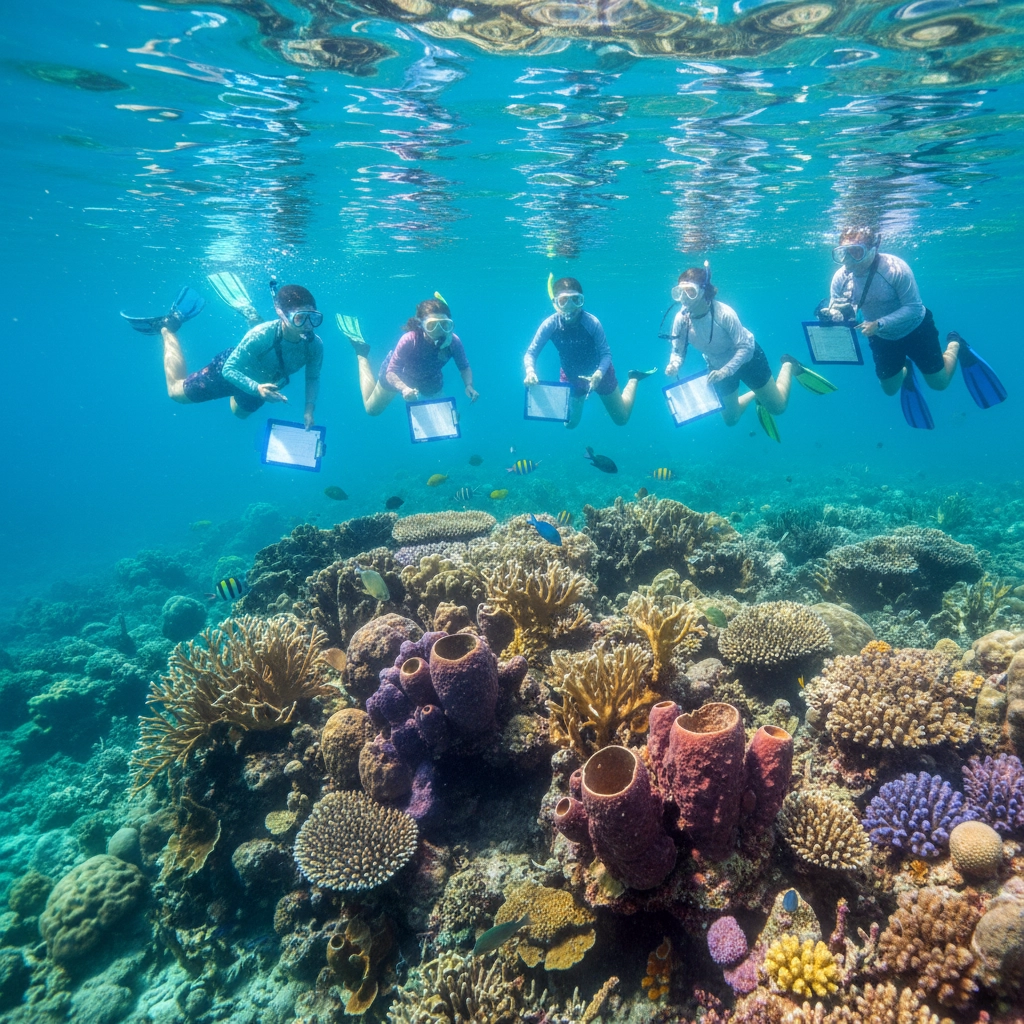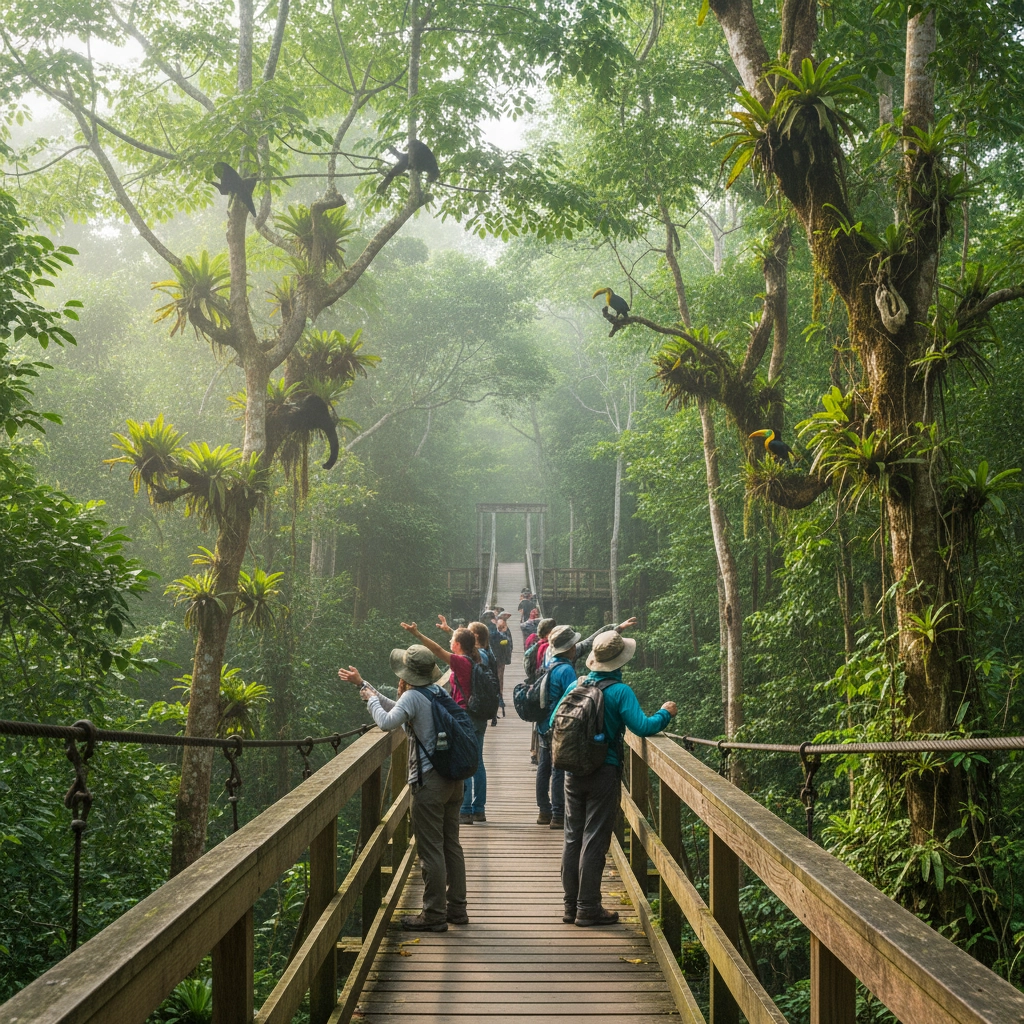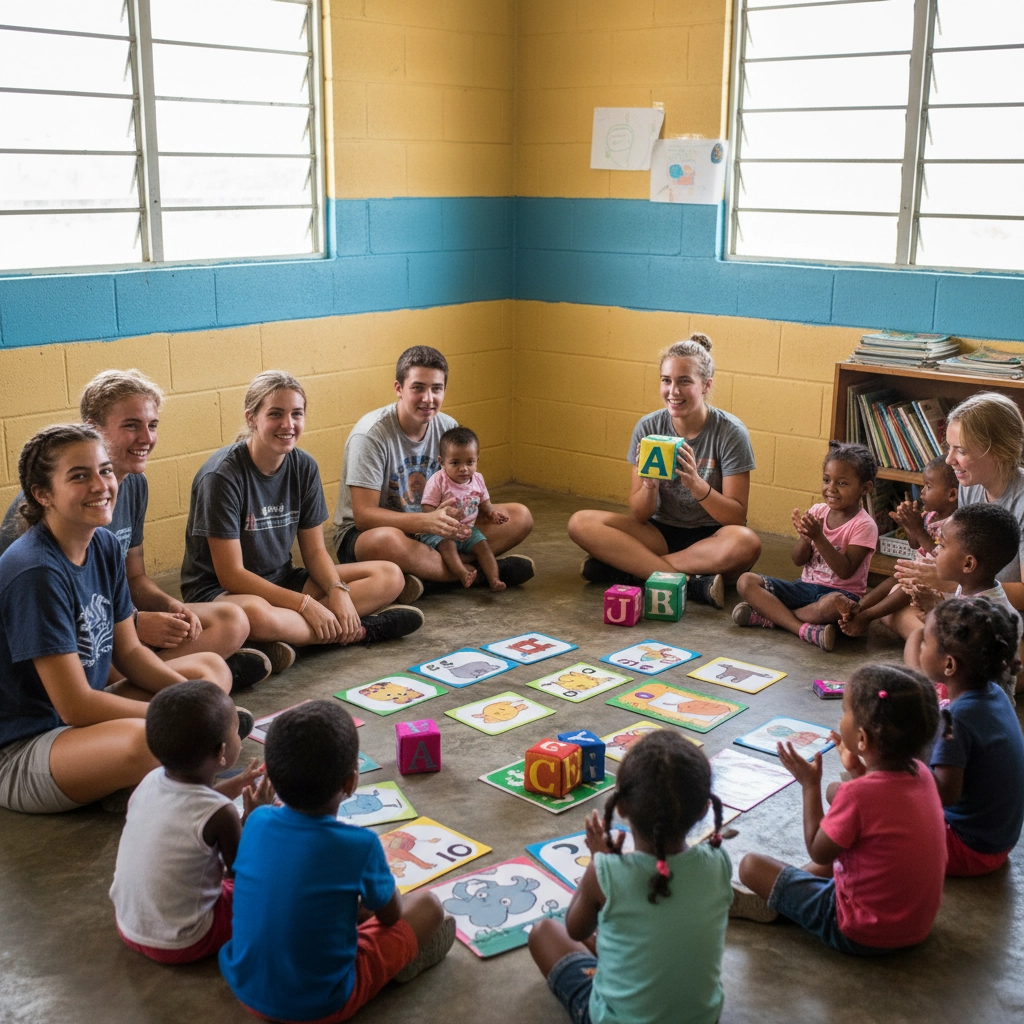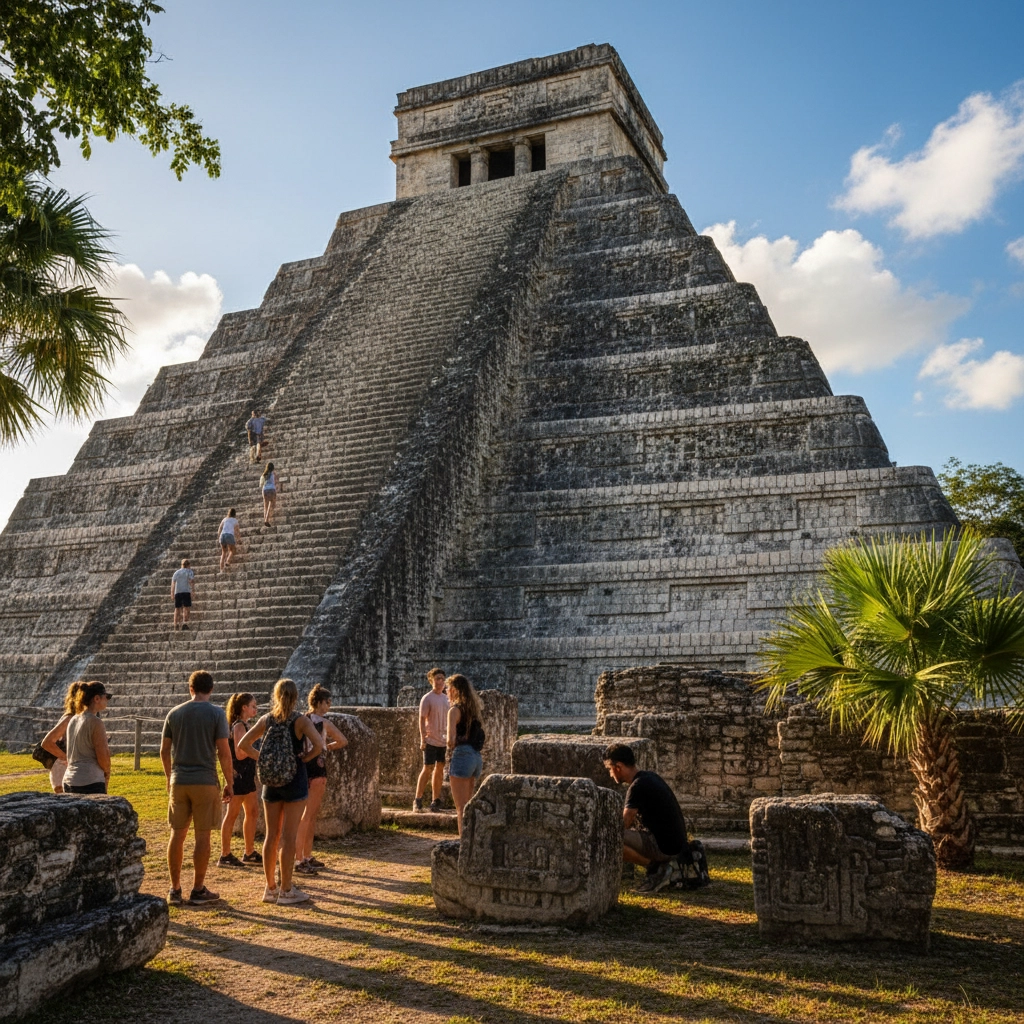How a Belize Trip Transforms Students: Science, Service, and Growth
- Caleb Mullenix
- Oct 23, 2025
- 5 min read
Ensuring comprehensive student development requires experiences that extend far beyond traditional classroom boundaries. Educational expeditions to Belize offer a unique combination of marine science exploration, tropical ecology immersion, and meaningful service learning that fundamentally transforms how students understand themselves, their academic disciplines, and their global responsibilities.
The transformative power of Belize lies in its extraordinary biodiversity: from the world's second-largest barrier reef system to pristine rainforests: combined with opportunities for authentic community engagement. When students participate in marine research, study tropical ecosystems, and serve at facilities like Liberty Children's Home, they develop scientific competency, cultural awareness, and empathy that reshapes their educational trajectory permanently.
Marine Science Discovery and Hands-On Research
The Belize Barrier Reef Reserve System provides students with unparalleled opportunities to conduct authentic marine science research while developing critical thinking skills. Students engage directly with coral reef ecosystems, documenting species diversity, measuring water quality parameters, and observing marine life interactions that textbooks cannot adequately convey.
Begin by preparing students to collect quantitative data on reef health indicators, including coral coverage percentages, fish population counts, and water temperature measurements. Emphasize the importance of precise observation techniques and scientific methodology as students snorkel above pristine coral formations, identifying species like elkhorn coral, brain coral, and massive barrel sponges.

Encourage students to document their findings through detailed field journals, combining scientific sketches with numerical data collection. This hands-on approach transforms abstract marine biology concepts into tangible understanding as students witness predator-prey relationships, symbiotic partnerships between clownfish and anemones, and the intricate food web dynamics that sustain reef ecosystems.
The practical application of marine science principles creates lasting comprehension that extends far beyond the expedition. Students return home with enhanced observation skills, improved scientific literacy, and genuine enthusiasm for marine conservation that influences their academic and career choices.
Tropical Ecology Immersion and Biodiversity Studies
Belize's tropical rainforests offer students comprehensive exposure to ecosystem complexity and conservation challenges. Create structured opportunities for students to study plant adaptations, animal behaviors, and ecological relationships within one of Central America's most biodiverse environments.
Advise students to focus on specific ecological concepts during forest explorations, including canopy stratification, nutrient cycling, and species interdependence. As students traverse elevated walkways through primary rainforest, they observe howler monkeys, toucans, and hundreds of plant species that demonstrate evolutionary adaptations to tropical conditions.
Implement systematic data collection protocols for biodiversity surveys, teaching students to identify indicator species, measure tree circumference, and document environmental conditions. These activities develop scientific methodology while revealing the intricate connections between climate, geography, and species distribution patterns.

Emphasize the importance of understanding human impact on tropical ecosystems by discussing deforestation, climate change effects, and conservation strategies with local naturalists. Students gain perspective on global environmental challenges while developing appreciation for indigenous knowledge and sustainable land management practices.
The tropical ecology component transforms students' understanding of environmental science from theoretical concepts to lived experience, creating environmental advocates who understand the urgency of conservation efforts through direct observation of threatened ecosystems.
Service Learning at Liberty Children's Home
Meaningful service learning at Liberty Children's Home provides students with profound opportunities to develop empathy, cultural competency, and global citizenship while making tangible contributions to vulnerable communities. Prepare students to engage respectfully and purposefully with children who have experienced significant challenges.
Establish clear expectations for student behavior during service activities, emphasizing respect, patience, and genuine care for the children they will serve. Students participate in educational activities, recreational programs, and facility improvement projects that demonstrate the power of service to create positive impact.
Share detailed preparation guidelines with students about appropriate interactions, cultural sensitivity, and the importance of consistency in their service commitment. Discuss how their presence and attention can provide emotional support and encouragement to children who may have limited adult role models.

Encourage students to reflect on their service experiences through guided journaling and group discussions that help them process the emotional impact of witnessing poverty and resilience simultaneously. These reflections develop emotional intelligence and global awareness that influences their future community engagement.
The service component at Liberty Children's Home creates lasting transformation by challenging students' assumptions about privilege, demonstrating the universal nature of childhood joy and curiosity, and inspiring ongoing commitment to social justice and community service.
Cultural Immersion and Global Perspective Development
Comprehensive cultural exploration throughout Belize develops students' appreciation for cultural diversity, historical complexity, and global interconnectedness. Plan structured interactions with Mayan heritage sites, Garifuna communities, and contemporary Belizean society that provide authentic cultural learning opportunities.
Begin cultural exploration at ancient Mayan archaeological sites like Caracol or Xunantunich, where students examine advanced mathematical concepts, astronomical knowledge, and architectural achievements that challenge assumptions about pre-Columbian civilizations. Discuss how these historical accomplishments relate to contemporary STEM education and cultural preservation efforts.
Facilitate respectful interactions with local Garifuna communities, where students learn about African, Caribbean, and indigenous cultural fusion through traditional music, dance, and storytelling. Emphasize the importance of approaching cultural exchange as learners rather than observers, encouraging genuine curiosity and respectful questions.
Create opportunities for students to practice Spanish language skills through market visits, restaurant interactions, and conversations with local guides who share perspectives on Belizean history, economics, and social challenges. These interactions develop communication skills while building cultural competency.
Measurable Student Outcomes and Long-Term Impact
Document the transformative effects of Belize expeditions through systematic assessment of student development across multiple domains. Establish pre-trip and post-trip evaluation protocols that measure changes in scientific knowledge, cultural awareness, empathy levels, and academic motivation.
Implement structured reflection activities that help students articulate their learning and connect expedition experiences to future academic and career goals. Research demonstrates that students who participate in international service-learning expeditions show significant increases in cultural competency, environmental awareness, and commitment to community engagement.

Encourage students to maintain connections with their service sites through ongoing correspondence, fundraising efforts, or return visits that sustain their commitment to global citizenship. Many students report that their Belize experience influences their major selection, career planning, and lifelong volunteer commitments.
Track long-term outcomes by following up with program alumni who often pursue careers in environmental science, international development, education, or social work directly influenced by their transformative Belize experience.
Planning Considerations for Educational Success
Ensure comprehensive preparation by addressing logistical, academic, and emotional readiness factors that maximize student transformation opportunities. Begin planning 12-18 months before departure to secure permits, coordinate with service partners, and prepare curricula that integrate seamlessly with expedition activities.
Coordinate with Liberty Children's Home administrators to establish appropriate service projects, group sizes, and scheduling that benefits both students and the children they serve. Discuss specific needs, available resources, and cultural protocols that ensure respectful and effective service delivery.
Prepare comprehensive safety protocols for marine activities, including snorkeling certification requirements, emergency evacuation procedures, and communication systems that ensure constant supervision and support. Partner with certified dive operators and marine biology experts who understand educational objectives and safety priorities.
Create detailed academic assessments that document student learning across scientific, cultural, and service domains while providing credit-bearing opportunities that justify expedition costs and time investment.
The comprehensive transformation achieved through Belize expeditions: combining rigorous marine science research, tropical ecology immersion, meaningful service at Liberty Children's Home, and authentic cultural exchange: creates educational experiences that fundamentally reshape student perspectives, academic trajectories, and lifelong commitments to global citizenship and environmental stewardship. These expeditions demonstrate that transformative education requires stepping beyond classroom walls to engage with the complex, interconnected world that students will inherit and improve.



Comments